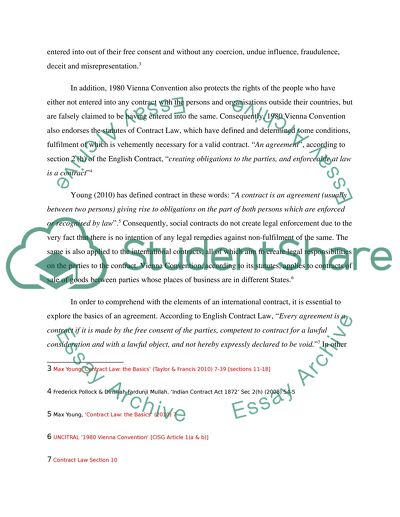Cite this document
(“United Nations Conventions on Contract Essay Example | Topics and Well Written Essays - 3250 words”, n.d.)
Retrieved from https://studentshare.org/law/1403424-united-nations-conventions-on-contract
Retrieved from https://studentshare.org/law/1403424-united-nations-conventions-on-contract
(United Nations Conventions on Contract Essay Example | Topics and Well Written Essays - 3250 Words)
https://studentshare.org/law/1403424-united-nations-conventions-on-contract.
https://studentshare.org/law/1403424-united-nations-conventions-on-contract.
“United Nations Conventions on Contract Essay Example | Topics and Well Written Essays - 3250 Words”, n.d. https://studentshare.org/law/1403424-united-nations-conventions-on-contract.


